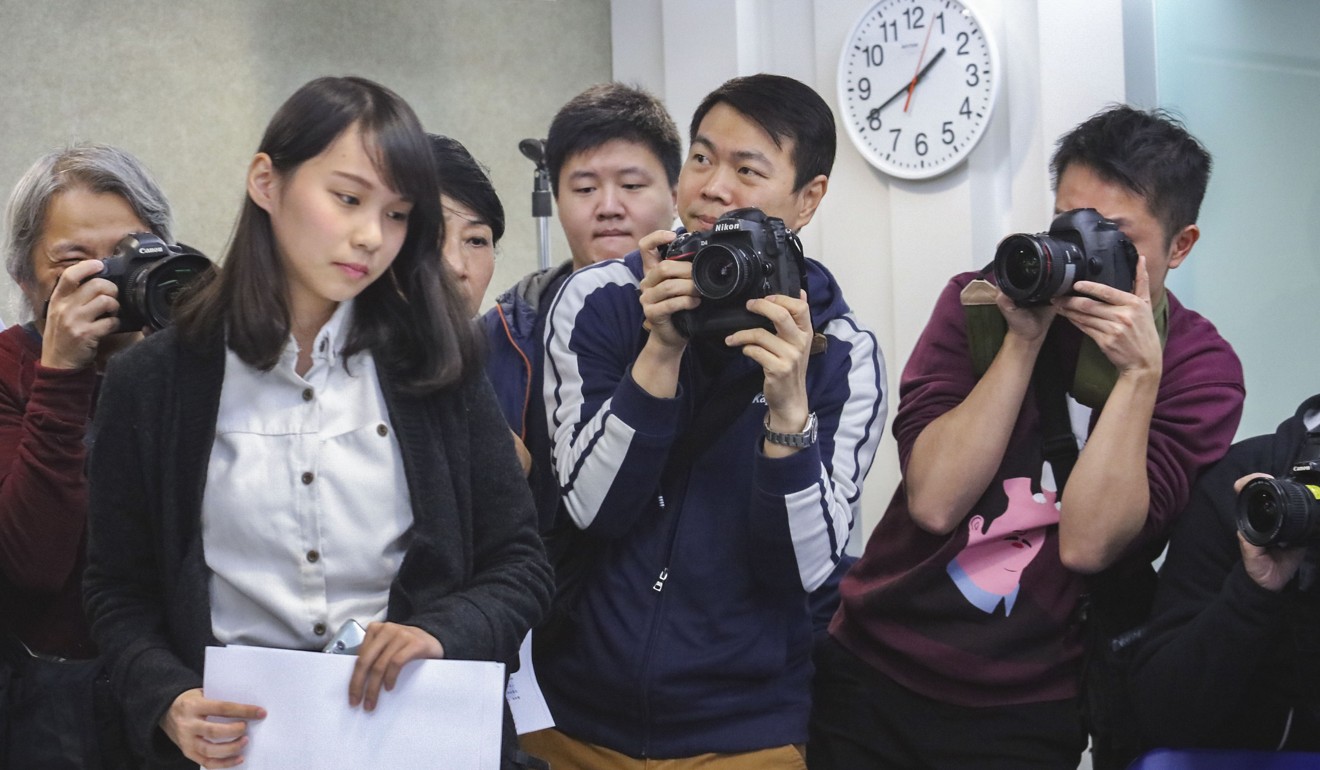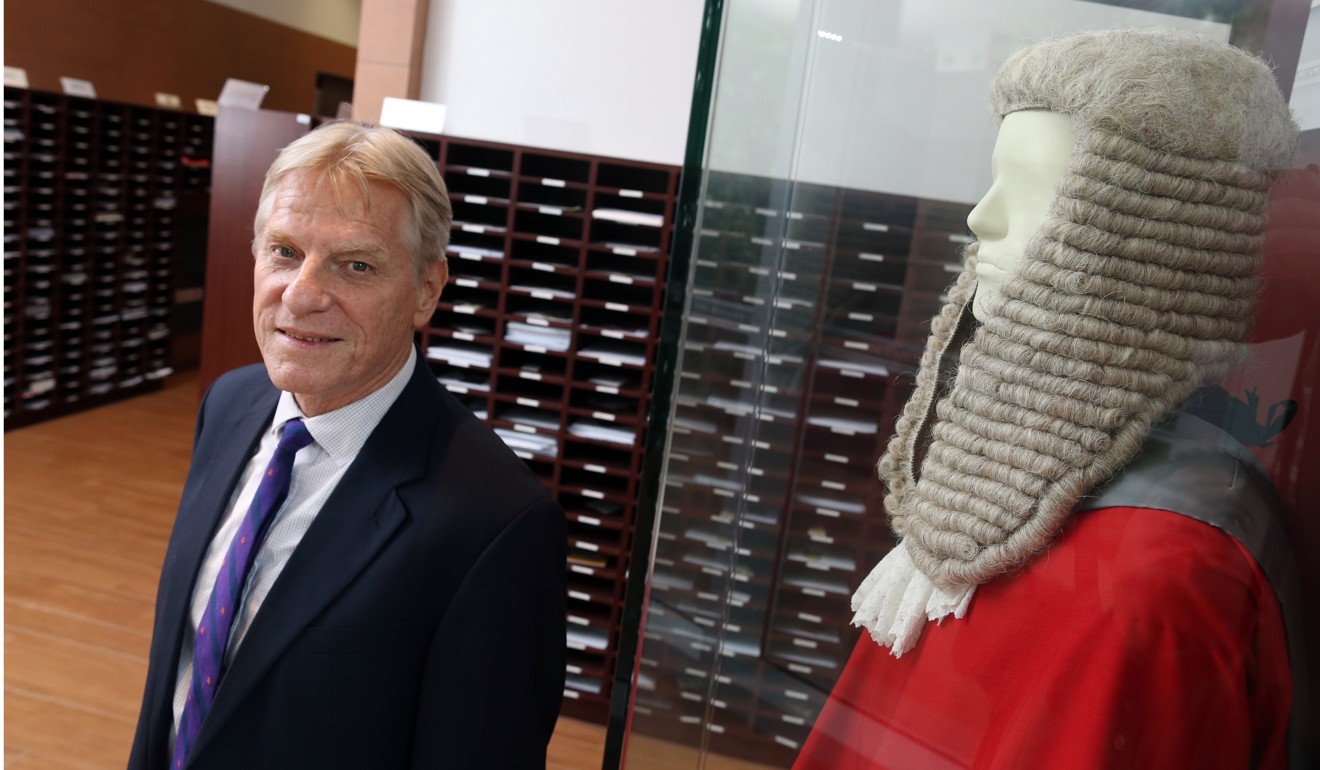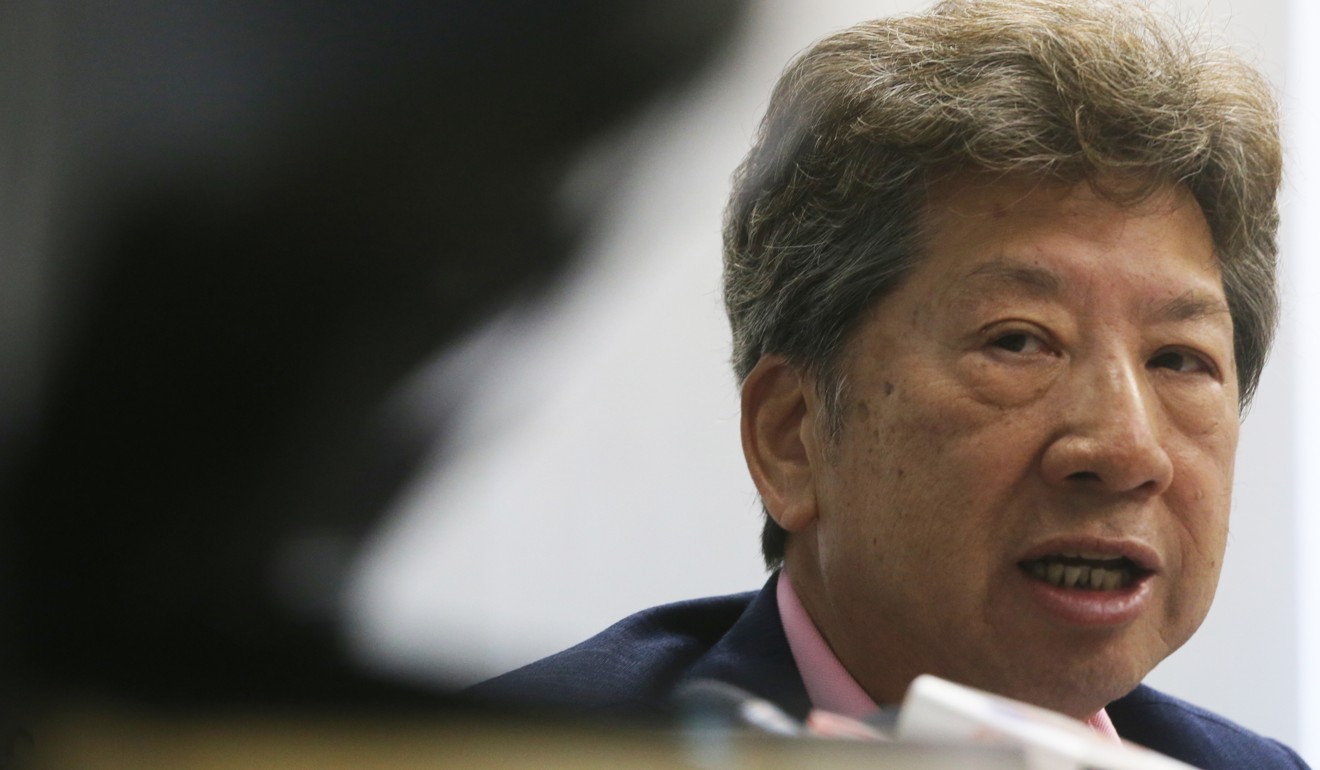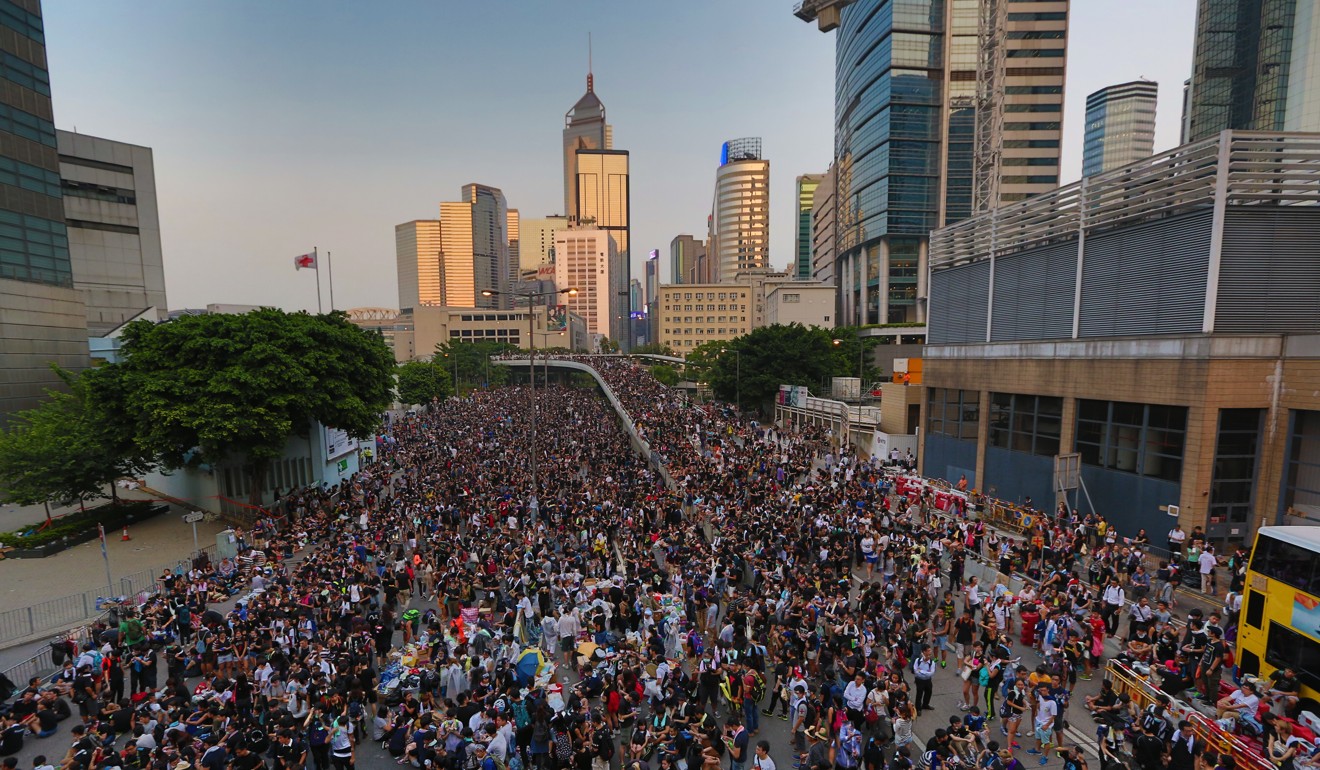
Hong Kong’s political opposition set to benefit from ‘sympathy votes’ after activist barred from by-election
Pan-democratic camp hope to capitalise on public anger over block on Agnes Chow Ting, as legal expert calls decision to bar her a ‘discrediting of the democratic process’
Hong Kong’s opposition politicians are hoping to turn a setback to their advantage and harvest more votes from supporters outraged by the banning of pro-democracy activist Agnes Chow Ting from running in the coming Legislative Council by-election.
The pan-democratic camp said on Saturday it would replace Chow with backup candidate Au Nok-hin in the Hong Kong Island constituency race.
The pan-democrats expressed worries that more candidates from their camp would be disqualified over their political views and urged the public to join their protest rally planned for Sunday.
Also up in the air is the fate of another hopeful from the camp, former lawmaker Edward Yiu Chung-yim, who intends to run for the Kowloon West constituency seat but could be barred on grounds stemming from his previous disqualification for improper oath taking.

Yiu did not evaluate his chances on Saturday, but said he would accompany “plan B” candidate Ramon Yuen Hoi-man of the Democratic Party to sign up on Monday, the deadline for the nomination period.
Both opposition and pro-establishment politicians are expecting Chow’s disqualification to help the pro-democracy camp win more votes.
Political storm in Hong Kong as activist Agnes Chow banned from by-election over party’s call for city’s ‘self-determination’
“The feelings of the people might change and the pan-democrats may win more sympathy votes,” lawmaker and executive councillor Regina Ip Lau Suk-yee said on Saturday, although she added that she respected the decision to ban Chow as electing a pro-independence candidate would hurt Hong Kong.
Her pro-establishment New People’s Party is fielding Judy Chan Ka-pui in the March by-election and plans to adjust its strategy after Chow’s disqualification.

Academic Michael Davis, a specialist in comparative constitutional law, also expected the pan-democrats to benefit.
“It is difficult to see how even the government or its supporters can be helped by this discrediting of the democratic process,” he said.
Will activist duo be banned from by-elections? Pan-dems demand answers from beleaguered justice chief
Electoral Affairs Commission returning officer Anne Teng said she disqualified Chow because she was not satisfied that the activist had complied with section 40 of the Legislative Council Ordinance in her official declaration promising to uphold the Basic Law, the city’s mini-constitution.
She said Chow’s political affiliation with Demosisto, which promoted “democratic self-determination” and the application of the principle of “sovereignty of the people”, was inconsistent with the one country, two systems policy.

Chief Secretary Matthew Cheung Kin-chung said the government agreed with and supported the decision.
“Let me stress that ‘self-determination’ or changing the Hong Kong Special Administrative Region system by referendum, which includes the choice of independence, is totally inconsistent with the constitutional and legal status of [the city] as stipulated clearly in the Basic Law, as well as the established basic policies of the People’s Republic of China regarding Hong Kong,” he said.
Eligibility of disqualified lawmaker to run in Legco by-election will be examined, justice minister says
“Upholding the Basic Law is a basic legal duty of a legislator. If a person advocates or promotes self-determination or independence by any means, he or she cannot possibly uphold the Basic Law or fulfil his or her duties as a Legco member.”
Executive councillor and barrister Ronny Tong Ka-wah said the political philosophy of Demosisto could give the impression that it endorsed independence as one option for Hong Kong.
But he acknowledged that Chow’s disqualification would have an impact on the election and Hong Kong’s democratic development if the courts also backed the move.

Davis said authorities should not even be disqualifying candidates advocating independence, let alone those calling for self-determination, in the absence of illegal action to achieve it.
He argued that there was still a question of definition when it came to the idea of self-determination, which could simply mean a right of Hong Kong people to renew the current governing framework for the city at the end of the 50-year period guaranteed under the Basic Law.
“It could include a right to choose independence or it could be conceived as something less, a choice within limitations as to the form of governance.”
Ex-Occupy activist, 21, to contest March 11 by-election in bid to be Hong Kong’s youngest ever lawmaker
Former University of Hong Kong law dean Professor Johannes Chan Man-mun said there was no legal basis for disqualifying Chow except for the fact that she was a Demosisto member, which in itself was not enough to bar a candidate from elections.
He noted that Nathan Law Kwun-chung – from the same party – was not disqualified from contesting the 2016 Legco elections.
Maya Wong, a senior Human Rights Watch researcher on China, said barring candidates from running in elections purely over their political stance was a violation of a basic right.
Lawmaker Charles Mok added: “This is not a matter that concerns only Agnes Chow. If the definition is not clear, more people from different parties may be disqualified in the future with no reason.”

